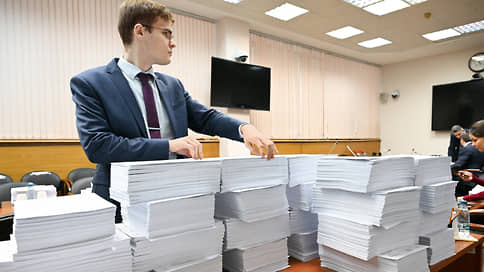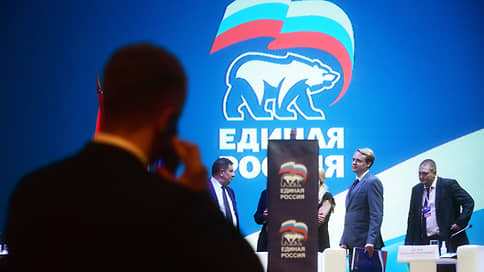The government modernizes the process of budget preparation

The government is preparing to accelerate the work on the budget. In the amendments to the rules for its compilation, the Ministry of Finance introduced the ideas of the government apparatus under the guidance of Deputy Prime Minister Dmitry Grigorenko to accumulate internal work-rejection of excess papers, automation of processes and “parallel” coordination of decisions based on the informatization of the management management. De facto is the White House’s answer to growing risks: the negative scenario of the Ministry of Economy forecasts implies a significant deterioration in the conditions for Russia due to sanctions and trade warfare, the basic relies on the advantageous growth of state monopoly tariffs-their incomes will be estimated by rolled state-owneds, but will cause price increases and prolong the period of high rates of the Central Bank. In both cases, the acceleration of the preparation and revision of the budget may be very popular.
The White House intends to modernize one of the most labor -cost processes in its activities – the preparation of the budget, follows from the draft government decree published by the Ministry of Finance Regulation.gov.ru. The document was developed on behalf of the Deputy Prime Minister Dmitry Grigorenko-the government apparatus he headed in recent years has been engaged in the modernization of the normative work of the White House, starting with the launch of regulatory guillotine and ending with a whole series of experiments to optimize its own work, which de facto led to one hundred percent compliance with regulatory requirements (See “Kommersant” from April 29). Now this experience, as “Kommersant” expected, will spread and, in particular, to be used to improve the budget process. For this, a sufficient number of ideas and decisions tested in pilots have accumulated, starting from the finds of the “emergency” budget reversal in the pandemic (then, we recall, all the unsettled funds of the ministries were consolidated for the operational financing of anti -crisis initiatives, See “Kommersant” dated November 26, 2020) and ending with projects on “parallel” and “automatic” coordination of documents by ministries to accelerate work (see “Kommersant” dated 24 October 2024), automation of rule -making (see “Kommersant” dated September 12, 2024) and others. In the Secretariat of Mr. Grigorenko, Kommersant confirmed: in optimizing the budget process, all three finds of recent years were used to modernize the processes without the risks of stopping them due to reforms-this is a refusal of excess documents, automation and parallel work of departments in agreement of the changes.
The transitional link for transferring this experience to budget work was the implementation of a single request for budget changes, which reduced the complex process of their coordination (See “Kommersant” dated January 6, 2024). The very environment in which new ideas are implemented is also ready for their “landing” – the government has experience with GIS “Electronic Budget” (ensures control of the movement of all budget revenues and allocations) in interaction with GAS “Management” (binds the costs of the implementation of national projects), also digitized state procurement, state investigations and budget payments passing through a single one The estimated system of the Treasury, and all this is covered by a feedback network in the form of budget, tax and customs monitoring and systems for monitoring the distribution of subsidies. Recent collegium of the financial department (See “Kommersant” from April 23) has already recorded technological readiness to expand this digitalization for the entire government and outside it.
The main changes affect the rules of calculations and approvals and the terms of preparation of the draft federal budget and budgets of extra -budgetary funds (recorded by Decree of the Government No. 326 of March 24, 2018) – related amendments are also submitted to the provision on the right to committee on budget design (Decree of the Government No. 189 of February 23, 2019).
In particular, the main managers of budget funds (GRBS) no longer need to pre -agree with the Ministry of Finance of the calculations of budget expenditures, and the debt debate is also excluded – they will no longer be submitted for consideration by budget right to committee. Instead, on the proposal of the Ministry of Finance, the commission will be able to consider disputes about the methods of calculating the basic budget allocations, if they are preserved after the preliminary stage in the development of the rules for calculating budget allocations according to state programs and other areas in which the ministry will participate. The coordination of proposals for the distribution of funds in budget codes and additional allocations will become parallel and will be discussed with departments at the same time, and not on the chain.
The proposals for the distribution of both basic budget allocations and additional budgetary funds of the GRBS will have to submit to the Ministry of Finance before August 1, having coordinated them not only with specialized deputy prime ministers, but also with right-handed committee on regional and scientific and technological development, this is a tool for ensuring the coherence of projects implemented by different departments. The regions, in turn, will now know in advance what results the federal subsidies are tied to: GRBS will be required to notify the regions about specific indicators that need to be achieved in exchange for money from the center.
Another innovation is the abandonment of the tough terms of preparation and consideration of draft laws, documents and materials developed when drawing up the draft budget due to the automation of approvals and document management in the electronic budget system.
Also, the new rules are brought into line with the government’s decree on project activities: their management councils are included in the editing of state programs, and it itself is drawn up by a single request.
Flexibility was required by the government in conditions of uncertainty. Recall that the Ministry of Finance prescribes systemic planning on the horizon not three, but five years to implement national development worth 41 trillion rubles. Until 2030. At the same time, although due to the self-isolation of the Russian Federation it remains little to be delayed by the development of trade wars, their escalation can reduce the demand for Russian export and redirect Chinese imports to the Russian Federation. Risks are also associated with a possible strengthening of US sanctions in the absence of progress on a peaceful transaction of the Russian Federation and Ukraine. This may require a sharp consolidation of government, after a large-scale anti-crisis budget redrawing in the spring of 2020 due to the pandemic, the government has such an experience. It should be noted that the oil and strengthened ruble has already required updating the budget parameters for 2025 (See “Kommersant” from April 30). The Ministry of Finance reduced the predicted income by 4.5%, or 2.6 trillion rubles, the amount of the budget deficit was increased more than three times, from 0.5% to 1.7% of GDP.
The Ministry of Economy does not plan to disclose in detail the stress scenario of the development of the economy (See “Kommersant” from April 21), the basic forecast of the ministry, although it is more optimistic than other assessments (it provides for GDP growth in 2025 2.5%, while the Central Bank forecast is 1-2%, the consensus of analysts from the Central Bank pool-1.6%, the forecast of the IMF-1.5%), but also carries risks. The optimism of the department is explained by the replacement of state investment in infrastructure by private: tariffs for the population are indexed by 11.9% in 2025 and 9.8% in 2026, these income must be sent to investment programs. A significant increase in tariffs above inflation will continue for four years, which will complicate the efforts of the Central Bank to return inflation to the goal and will delay the possibility of softening monetary policy. This scenario may also require an operational reaction of the White House to changes in the economic situation.







